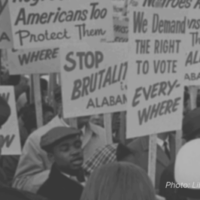Following is a statement from Rebecca Dixon, executive director of the National Employment Law Project (NELP):
“As predicted, following the impact of the COVID-19 pandemic, new unemployment claims last week skyrocketed to a staggering 3,283,000 initial claims. This is completely unprecedented in the history of the United States, far exceeding any previous level of one-week claims. The good news is that millions of workers are accessing economically vital unemployment compensation. For workers in the formal economy, UI is the best benefit delivery system for people who have lost work involuntarily. Unemployment benefits are essential to workers, their families, and our economy.
“Absent from these unemployment claims are people with jobs in the informal economy, which is driven by workers who face structural barriers, such as formerly incarcerated people, undocumented immigrant workers, or the self-employed in dozens of industries, from street vendors to domestic workers and more. While formerly incarcerated workers are not excluded from UI for having records, those who are consigned to the informal economy, would not be eligible. The intersection of structural racism, xenophobia, and stigma relegates many Black, Indigenous, and people of color to this precarious work.
“Compounding employment barriers are persistent rates of hiring discrimination. Black unemployment rates are nearly double those of white workers, and communities of color never fully recovered from the last recession.
“The good news is that, as we enter a period of steep economic decline, workers are organizing. They are demanding immediate relief to workers suffering employment loss caused by this pandemic, and we applaud policies that will increase support to struggling workers now.
“Today’s claims report makes it clear: states must use this moment to ensure their UI program can meet the demands of this moment, both by ensuring access to the systems and robust benefits for all workers. And workers who have tried and not been able to access UI systems should keep trying.
“If we are to survive and thrive together beyond this crisis, we must develop solutions that financially stabilize all workers—including workers of color who, because of historical exclusions from formal job markets, may be left out of UI. As we see these unemployment numbers we recommit to a worker-led movement that will build power to achieve equitable and lasting structural reforms to our unemployment systems and to lift up all workers.”




